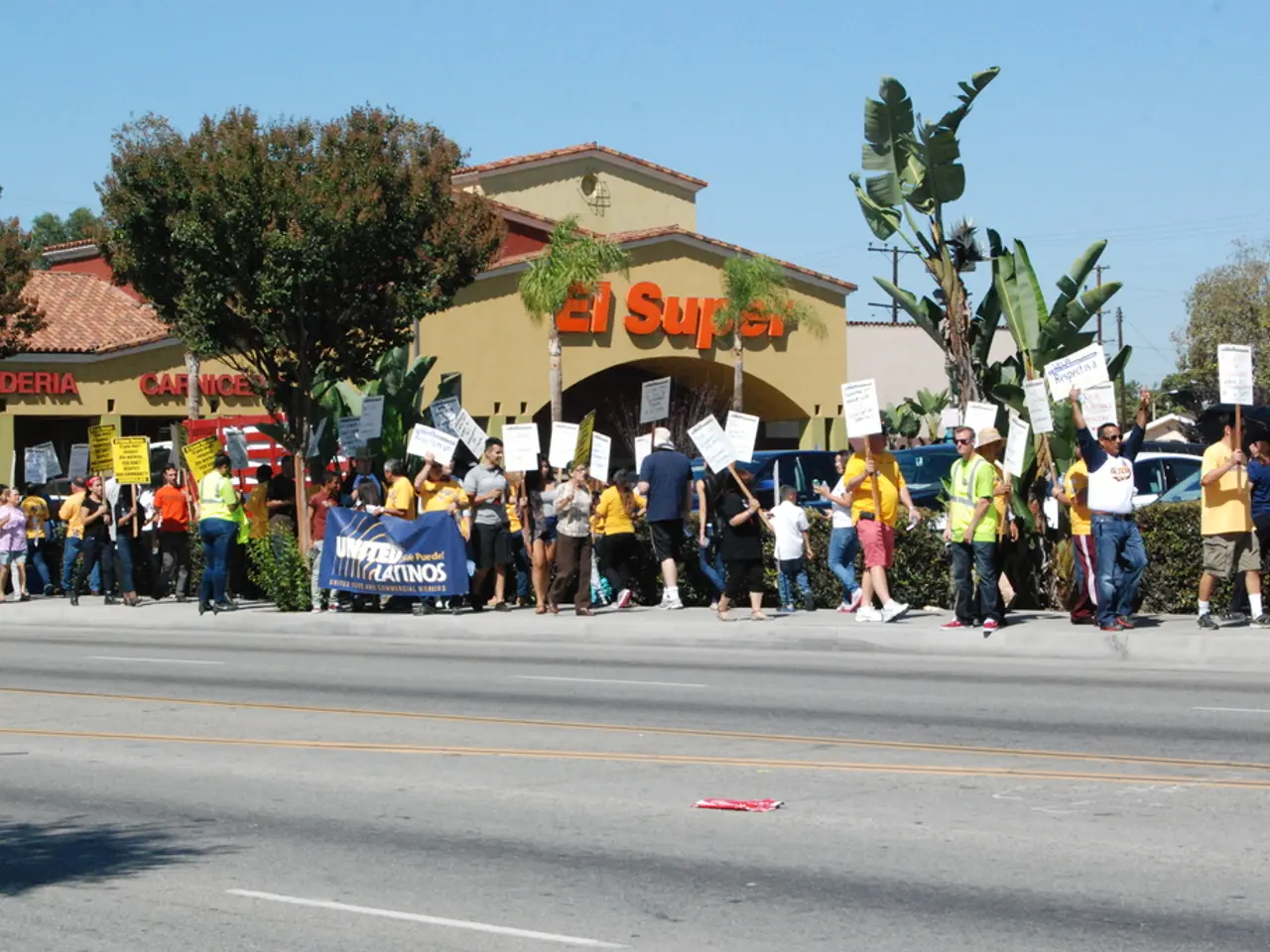Exploring Race, Law Enforcement, and the Criminal Justice System: An Analysis of Race's Impact on Policing and the Judicial Process
Living in a World Divided: Unpacking Racial Justice and Police Reform
The complex interplay of race, policing, and criminal justice has exploded into widespread conversations, shedding light on the urgent need for reform. This post dives into the heart of these issues, exploring potential solutions for reshaping law enforcement, dismantling systemic racism, and forging a more equitable society.
The Ever-Present Specter of Systemic Racism
Systemic racism is an insidious, deeply rooted prejudice that manifests across various social, economic, and political landscapes. In the realm of policing and the criminal justice system, it has spawned an alarming disproportionality in the treatment of racial and ethnic minorities, particularly Black and Brown communities.
Research reveals that people of color, particularly Black individuals, are overrepresented in police interactions, with an elevated likelihood of being stopped, arrested, and subjected to excessive force. This unjust disparity not only undermines trust in law enforcement but also perpetuates a vicious cycle of inequality and injustice.
Rebuilding the Foundations of Law Enforcement
Efforts to reform law enforcement practices aim to tackle the systemic shortcomings that fuel racial inequities in policing. By implementing wide-ranging police training programs that emphasize de-escalation techniques, cultural sensitivity, and implicit bias awareness, we can reduce the chances of avoidable use of force and discriminatory practices.
The call for increased accountability and transparency in law enforcement agencies is deafening. This involves establishing independent oversight bodies to scrutinize complaints against officers and ensuring that those engaging in misconduct are held responsible through disciplinary measures.
Charting a Course Towards Social Equity
Advancing racial justice demands more than just reforming law enforcement practices; it requires eradicating the underlying social and economic inequalities that cultivate these issues. Investments in community-based initiatives, such as affordable housing, quality education, and mental health services, can address the root causes of crime, diminishing the reliance on policing as a primary solution.
By redirecting resources towards prevention and support services, we can construct a fairer society that prioritizes the welfare and safety of all its members.
Gearing up for Meaningful Community Engagement
Active community involvement is integral to progress in the realm of racial justice and police reform. By fostering avenues for continuous dialogue between law enforcement agencies and the community, we can cultivate trust, understanding, and collaboration.
In model communities, officers work in tandem with residents to tackle local issues and forge positive relationships, resulting in reduced crime rates and heightened satisfaction with law enforcement.
Wrapping it up
Racial justice and police reform necessitate a comprehensive, multidimensional approach. By addressing systemic racism, revamping law enforcement practices, championing social equity, and championing community engagement, we strive for a more just and equitable society.
The momentum for change lies not only in the hands of policymakers, law enforcement officials, and community leaders but also in every individual. Only by collective action can we build a future that guarantees safety, equality, and dignity for all, irrespective of race or ethnicity.
- Education plays a crucial role in promoting understanding of racial justice and police reform, with resources available on blogs offering insights into the complexities of these issues.
- Mental health services are essential in addressing the root causes of conflict and fostering healing within communities affected by war-and-conflicts, migration, and crime-and-justice.
- Policy-and-legislation must address systemic disparities in areas such as housing, employment, and education to promote societal equity and combat racism.
- Politics should prioritize addressing problems that disproportionately affect marginalized communities, ensuring their voices are heard and their concerns are addressed in discussions about general-news and policy.
- To create a truly equitable society, we must continually strive for improvement in every aspect, from law enforcement practices to community relations, understanding that the work towards racial justice and police reform is ongoing.




